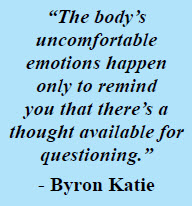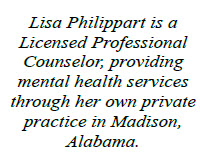 By: Lisa Philippart
By: Lisa Philippart
In my previous article, we examined the uncomfortable emotion of envy. I suggested that perhaps envy could be viewed as a useful prompt for thinking more deeply about your values and what matters to you. Now let’s look at two more uncomfortable emotions, pride and pity, to see how we might reframe their meanings in a more positive light.
 I’ve always been surprised at how hard people work to avoid admitting that they are proud of themselves. It’s as if they are afraid that the tinniest admission of pride will lead to every important person in their lives immediately casting them out for being too self-centered. Unfortunately, pride has a reputation of being sinful or bad. But let’s take a step back and reconsider the emotion of pride as being on a spectrum. You can have positive feelings about your accomplishments without being a self-centered narcissist. In fact, in my experience, the extreme avoidance of pride is actually more problematic. For example, it’s hard to have genuinely close relationships if you can’t accept a compliment or acknowledge someone’s praise for you. Likewise, you find it difficult to maintain healthy self-esteem if you’re constantly devaluing your achievements.
I’ve always been surprised at how hard people work to avoid admitting that they are proud of themselves. It’s as if they are afraid that the tinniest admission of pride will lead to every important person in their lives immediately casting them out for being too self-centered. Unfortunately, pride has a reputation of being sinful or bad. But let’s take a step back and reconsider the emotion of pride as being on a spectrum. You can have positive feelings about your accomplishments without being a self-centered narcissist. In fact, in my experience, the extreme avoidance of pride is actually more problematic. For example, it’s hard to have genuinely close relationships if you can’t accept a compliment or acknowledge someone’s praise for you. Likewise, you find it difficult to maintain healthy self-esteem if you’re constantly devaluing your achievements.
 So, while overdoing pride can be a concern, that’s probably not a good reason to simply avoid it altogether. Those who have an unhealthy relationship with pride often connect feeling pride with acting prideful. It doesn’t make a lot of sense to claim the feeling of pride is bad if it’s not something that you have control over. (In my opinion, we don’t have direct control over any of our emotions!) So go ahead and slow down your arrogant actions, ignoring other people and making everything about you, or bragging about insignificant efforts if these are actions with which you struggle. Pride is just your mind’s way of communicating to you that you’ve done something worthwhile and important. And just like we make it a point to congratulate others on a job well done, why not extend the same courtesy to yourself?
So, while overdoing pride can be a concern, that’s probably not a good reason to simply avoid it altogether. Those who have an unhealthy relationship with pride often connect feeling pride with acting prideful. It doesn’t make a lot of sense to claim the feeling of pride is bad if it’s not something that you have control over. (In my opinion, we don’t have direct control over any of our emotions!) So go ahead and slow down your arrogant actions, ignoring other people and making everything about you, or bragging about insignificant efforts if these are actions with which you struggle. Pride is just your mind’s way of communicating to you that you’ve done something worthwhile and important. And just like we make it a point to congratulate others on a job well done, why not extend the same courtesy to yourself?
I’m sure you have heard people say, “Don’t pity me!” First of all, pity is an emotion, not a behavior. It’s not something you do, it’s something you feel. It’s kind of like telling someone: “Don’t sad me.” And also, why should someone else get to decide whether you feel pity or not? It’s not about them…it’s your emotion. I think we tend to avoid pity because, like most forms of sadness, it makes us feel helpless. When someone experiences pain or misfortune, there is often not much you can do to help, which makes us feel powerless or even inadequate.

We often feel sad for other people who are feeling sad. (That’s pity.) You feel pity (sad) when someone you love or care about is struggling. So, what’s the big deal? Emotions like sadness and pity are completely normal. In fact, pity can be extremely helpful. It’s hard to be compassionate if you never feel pity. Compassion is the mental act of putting yourself into someone else’s shoes and seeing the world through their eyes…which often leads to acts of charity, kindness, or forgiveness. And while it’s always technically possible to be compassionate regardless of how you feel, it’s a lot easier to be compassionate if you allow yourself to feel pity.
By: Lisa Philippart
Licensed Professional Counselor






